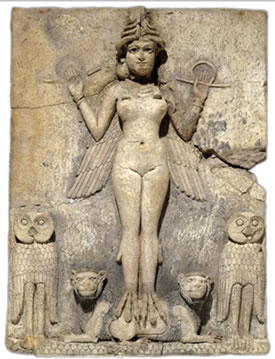
| Feb. 12, 2008 Introduction | Part One | Part Three | Part Four | Part Five | Part Six | Horoscope | Link to This Subscribe to this series. Touching the Goddess of Curiosity Dear Friend and Reader: IN THE FIRST article in our series, we began with a young woman pointing out that it's not about sex, it's about self. She then admitted that at least in her life, monogamy was not supported by fidelity as much as it was enforced by jealousy; and that this jealousy had a way of limiting her existence. For example, she likes to model, but her boyfriend was jealous and controlling to the point where she had to keep it secret.
All of this is more complicated than eating pussy. Yet we have the constant allure of sex and the subtler calling of love to hopefully keep us trailblazing through the evolutionary jungle -- and when we remember, reminding us to celebrate life. The Problem of the Male Ego In any discussion of sex and relationships between men and women, we need to consider the special role of the male ego in our culture, because it does indeed have one. This discussion comes courtesy of Genevieve, one of my astrology students, who offered me these ideas Sunday morning. I won't use direct quotes, only paraphrase her with lots of embellishments, I hope faithfully enough. My mentor Joe Trusso also assisted with this section. Concepts of God and self mirror one another, and this is reflected in society. The nature of a society's concept of God is going to make an impression on us. It will inform us about who we think we are; it will be in the architecture of our lives from before the first pencil lines are drawn. We live in a society with an artificial God. I say artificial because there is no viable concept of Goddess in our dominant Western religions*. God is depicted as a man, incarnates as a man, and is most commonly referred to with male pronouns. Some people know enough to think, "Well that's just an image, it's a concept but not really true," but you would perhaps not be surprised how many people just go along with the bearded old man, even if they laugh at it. It's also just about the only image we have, in mass culture. If God showed up as a little girl, people would think it was a Stephen King novel, and others would scream about heresy.
And lest we forget the extent to which our ideas about ourselves, the purpose of our lives, and our entire relationship to the physical world was influenced enormously by slaughtering Judeo-Christian/Muslim armies. A cosmic picture where there is only a male attribute of God is imbalanced, and we live in an imbalanced world, with serious power imbalances in our relationships. There is no way, under this model, that we can have a sustainable cosmos, including interpersonal, environmental, economic and many others. Heterosexual relating would work without a hitch, if we would only consider the man to be as God. Once you do anything else, you step outside the dominant paradigm, the known map of the reality disappears, and you have to make your own way through the unknown. Thousands of years of conditioning under patriarchal rule, however, have taught women that (in essence) they don't exist, especially since divinity cannot [legitimately] manifest in female form. This, in turn, leads to a world where the male ego reigns supreme. Religion is handy because it gives us someplace to invest all this sexual tension between the genders. It provides a moral code that makes it simple, with its pre-made social contracts, and its constant, strict moralizing, to at least temporarily resolve a very complicated problem, or at least what seems complicated. It is, arguably, an "escape from freedom" scenario wherein we opt for a kind of fascism simply because it's easier, and we are, in general, lazy. Genevieve pointed out that, in addition to this, the phallus can be easily represented in art; it is an oblong thing. A woman, by gender, is defined by a space inside her; by a void, which can take many different shapes. This is less easily represented in art, and less easily perceived by the senses. Sigmund Freud, Simone de Beauvoir (the pioneering French feminist) and many others have noted that the obvious presence of the penis accounts for the supremacy of the male ego. What we are left with is a male-dominated biology, male-dominated art and a male-dominated concept of God, which reflects in a male-dominated society and, of course, male-dominated models of relationship. We have made some progress with feminist movements in the past century or so, and because Paganism is experiencing a revival, there are more people aware of and loving Goddess than ever in our society's history. But these things are still pretty esoteric. The inherent structure and energy of society have yet to shift in a way that is getting too many obvious results. (For those excited about Hillary Clinton, I would refer you to her speech supporting the Bush family's illegal war in Iraq.)
As we apply an understanding of this condition to relationships, we need to bear in mind that our male-dominated religions range from not so friendly to extremely hostile toward sex. Christianity in particular gives us a story where God is born without sex, without passion, and disconnected from nature; and with only the passive involvement of a woman. Though Jesus made only two references to sex that are recorded in the testaments -- neither of which was a prohibition -- Christianity (as we know it today) from the ground up, is based on assailing sex, provoking guilt about sex, and forgiving sins that are predominantly sexual. Nature and God are presumed in this theology to be at war; human nature itself is presumed to be a violation of God's nature. From what I have read, this is highly unusual in the history of world religion, and it's unusual that nobody cares to point out this rift between what Jesus taught and what the Church teaches. Let's visit another version of spiritual consciousness, from the book Woman as Healer, by Jeanne Achterberg. This was sent to me by Danielle. "In Sumer [in ancient Sumeria, located in the approximate vicinity of modern-day Iraq] the most sacred of all acts -- sexual union -- was celebrated as the green shoots pushed through the spring soil, giving promise of the harvest to come. The union of male and female was enacted to encourage the birth and growth of all that sustained life. It was, indeed, an act representing love, healing and birth -- the trifold province of Inanna. "Inanna, by her several names and through her mortal representatives, participated fully in these sacred marriage rites. Her votaries chose their own male consorts and explicitly, actively, and skillfully engaged in making love with them. Hymns and poetry from that time are an erotic tribute to these rites. "Inanna calls to her 'honey man' who, she says, 'sweetens me always'. And the king went to her holy loins with lifted head, opening his arms wide to the Priestess of Heaven. [She writes, in scripture:] He shaped my loins with his fair hands,Because we have denied, or had stripped from our cultures and our minds the existence of any actual notion of Goddess, we can barely conceive of such a thing. We can barely imagine a world where (because property rights are not such a big deal) it doesn't matter who the father is. Though it seems shocking to say in the 21st century, we can barely imagine a woman being a full person, with all her rights and privileges. We live with woman who are, for the most part, accustomed to living in the shadow of men. Where does this leave men who want to coexist with women as equals? It helps, at least, to be aware of these themes. And it helps to look for women who are themselves aware, but who have gone past the stage of acting out their rage on the next sensitive guy who comes along. The solution involves something other than women declaring themselves supreme. Rather, men need to honor women as equals, which can be disorienting for both parties; and also treat them as the Exalted Other. *In practice, many Roman Catholics pray to the Virgin Mary. However, she is a saint, not a Goddess, or the Goddess; she is a kind of stand-in for the Goddess, providing comfort to untold millions of Catholics. But she is denuded of her sexuality. According to Wikipedia's entry on Mary, "Christians generally maintain that she was a virgin at the point of conception and at least until the birth of Jesus. The Roman Catholic, Eastern Orthodox, and Oriental Orthodox Churches and some Protestant denominations also maintain that Mary remained a virgin throughout the rest of her life." The Question of Loyalty
Both men and women can and often do experience this figure-background shift, and both sexes and people of any sexual orientation can experience intense bonding as a result of sex that leads them to want exclusivity. Women, for various biological reasons, are presumed to want to give, or possess, this bonding more. In real life, I see no support for that idea. Both sexes can get extremely possessive from just one sexual encounter, due to its beautiful and cosmic nature; both sexes can experience violent, jealous rages; and promiscuity knows no bounds -- that is its nature. If women claim that only women feel that hormonal bond with a partner after just one sexual encounter, they are denying the experience of men who go through the same thing. Beneath the feelings we may experience in our bodies, there is the social presumption of absolute exclusivity. Our idea of who another person is tends to deny not only that they will have deep feelings or sexual desire for another person, but that they ever did or ever will. Try it and see. If you have a partner, try to imagine the next person they are going to make love to, or their next lover. Try to imagine yourself loving or being sexual with someone else. How do you actually feel doing so? Although this possibility is almost inevitable in a world where lifelong monogamy is now extremely rare, we tend to cloak these possibilities in denial. It does indeed happen, sometimes, that we bond with someone and everyone else fades to the back for a while. Nobody is as beautiful as the beloved. And it so happens that two people meet and share this experience for the rest of their lives. While people do indeed meet life partners they bond with for periods of time, some of them very long, more often these relationships are transient. Instead of viewing this quality as an aspect of their beauty, and embracing a person while we have the chance, we tend to go into denial and treat them as permanent bonds. It seems we have to quell the volatility of human nature with many unspoken or spoken obligations, contracts and agreements, including the seeming courtesy of hiding our other attractions. In essence, we either make up a story about exclusivity, or we do our best to conceal that any other story might exist; and this, we refer to as permanent. This would be different if we did not, at the same time, treat our relationships as disposable, mainly by our actions rather than our concepts. Typically, we have two modes of relating in Western culture: the throwaway one-night stand, and taking the other as property. Both insinuate property -- in one case, to throw out, and in the other case, to keep covetously. We might have a place for permanence if we could be erotic within our long-term friendships; or if we did not truly have such a difficult time maintaining even civil relations with people who were once our lovers. Usually, there is radical discontinuity when a relationship 'breaks up'. We typically do not maintain physical contact (though often there is psychic obsession with past partners), and if we were to maintain contact, that would be viewed as a threat by the current partner. Most people lack a sufficient underlying basis of actual friendship with their lovers to have that continuity exist. The practical question of loyalty seems to be limited to trusting that your partner will not have sex with someone else. That is a lot of pressure to put on a compelling biological function, and a grossly oversimplified way to define such a complex emotion as loyalty. Still, there are people who are so loyal, or so sensitive, they would never do something to hurt someone, and guide themselves on this principle. Here is how Danielle, someone who has practiced serial monogamy most of her relationship life, put it: "When someone is in love, it's assumed he or she isn't noticing others in a sexual way because they have what they want or need. If I'm being drawn to other men, it's because they have traits I want that I'm not getting in my relationship," she said. "In the monogamous construction of a relationship, that's the assumption. If I'm noticing someone, responding to them with my root chakra, there must be something missing in my relationship because I shouldn't want other men. In the past, I've actually worried, wondering if I'm capable of marrying someone 'til death do us part', because I thought -- that's what everyone is doing, they must really be in love, some special love that excludes all others. And I was wondering if it would happen to me, if I would also find satisfaction in just one person." As for her partners, she continues, "We presume that men notice beautiful, attractive women all the time. But they don't make it obvious, and women appreciate that discretion. He may notice, but it's presumed that out of respect for your partner, as part of the social ritual of relationship, that you don't make it obvious." I asked: And this is to protect your ego? "Ya...a relationship is like the safe zone -- there is no potential for sex in the other people you meet, because you have a partner. Knowing guys with partners is almost like having woman friends, but they're men. If there is sexual tension, it’s muted because you're not going to have sex with them. When I could say I had a boyfriend, the relationship would go so far, but it would stop. And I felt that if I did decide I wanted to sleep with someone else, then I had to make a choice, I couldn’t be disloyal, it was one or the other but never both." She adds: "I didn't have to participate, in a way. I feel like I missed great opportunities to experience life. But I couldn't just have casual sex with people. If you have sex, you belong to each other. Now we've had sex. Our hands are tied together. It's a question of freedom or slavery." Danielle suggests that loyalty and discretion are what influences men she has known to pretend they don't notice other women. I can tell you that for me, it was about guilt. I would feel guilty when I was with a woman and noticed someone else beautiful. It was like I had barbed wire wrapped around me, and if I noticed, some force in my personality would give it a tug. It has taken me a lifetime to make some progress learning to give up that guilt. I started with the affirmation that I have a right to notice what my senses perceive, and what I feel with my emotions. It took me a long, long time to claim back this inner territory. In the process, I became aware that I was dealing with ancestral pain that I had inherited from long before this lifetime. I gradually understood that I was working through an enormous amount of cultural stuff that was trying to dictate not only my emotions, but my thoughts, observations and feelings. Gradually, I was able to do two things: one was to become articulate about the issues; the other was to enlist the support of the women in my life at resolving this problem. I was, at the same time, able to define an aspect of my purpose within my sexual friendships of doing the same thing for women -- that of being someone who was there to bear witness to their right to exist, encouraging their freedom, and gradually coming to love, appreciate and embrace their holistic sexuality as it existed with me, and apart from me. The Role of Guilt - and its Opposite
In its defense, you might argue that its objective is to enforce actual right and wrong conduct, but it is not guilt that keeps anyone from robbing a bank or murdering someone. More often, guilt is the cause of violence rather than anything that prevents it. Guilt is used to control the behaviors of others that might in some way threaten us. It is also taken on (usually by a child) as a result of moralizing, or through a child's sense of responsibility for the parents' pain. Fritz and Laura Perls, the early pioneers of Gestalt Therapy, recognized the profound power of guilt to debilitate a human being and indeed seize their entire life from within. They taught that guilt is resentment turned against itself. Generally speaking, children, being the powerful yet powerless little critters they are, take upon themselves the notion of "fault and blame." They cannot imagine adults (who are personifications of the gods and goddesses) making an error. If they do, it's still the "fault" of the child. "If only I would've done this or that, daddy wouldn't hit me." "If I was quieter, mommy wouldn't drink." And so on. Since they are at "fault," they are "guilty," and since they cannot rage against adults very successfully or have a real impact on the direction of events, they turn the resentment at being pruned, modified, corrected, disciplined, strongly directed, or dictated to, back at themselves. It's fair to say that our lives, so often filled with the idea that we cannot influence the direction of events, so often caught in the web of control, of bosses, of taxes, of children, and yes, of our sexual relationships, are often holographic copies of these original crushing relationships with parents and teachers. Yet as adults, the programming, the patterns, are contained within us. They are internalized. Check it out: do we have especially creative jobs? Dare we say what we feel, go where we want, be who we are, or have sex with who we desire -- or even make it known that we want it? Or are we pruned, modified, dictated to, and denied out of existence by our own self-control? As adults, guilt is to love and happiness what embalming fluid is to human blood. In many relationships, it has come to entirely replace the sense of bonding, friendship and kindness that previously characterized the joining. Our guilt is the means by which we allow other people to control us; when we give up our guilt, we are no longer subject to emotional manipulation, and therefore partners, parents, bosses and so forth can no longer control us; we are free.
If you asked most people what was the opposite of guilt, they would say innocence, but when do we actually feel innocent? How about this: the opposite of guilt is curiosity. Curiosity is the mind in an expanded state, ready to embrace what comes its way. Guilt is the mind in a contracted state, aware of how bad it feels or how wrong it is. Curiosity is the mind in an open state, welcoming reality into consciousness. I think that in most people's personal stories, where curiosity ends, guilt begins. This has everything to do with sex. Curiosity is specifically the state of mind of innocent exploring, that is, without specific boundaries of social appropriateness. We can also explore within appropriate boundaries, and that still involves going exactly in the opposite direction as guilt. We need those boundaries, but we don't need them in the form of guilt. Guilt is a shut down mechanism. Curiosity is an open-up maneuver, where we allow ourselves or at least our minds and feelings to be led wherever life may take us. Or, you could think of her as an archetypal force within the psyche...the Goddess of Curiosity. Continued Wednesday Night: All or Nothing Models of Relationship; Too Hot: An Alternative Theory of Jealousy; and Compersion: A Missing Idea. Coming soon: Reader letters in response to this series. To send a response, please use this link: info@planetwaves.net. |





